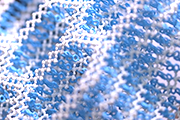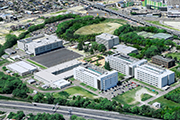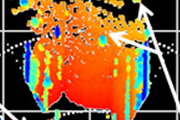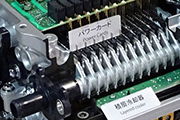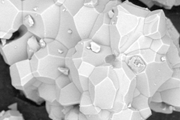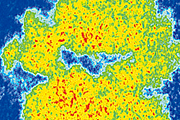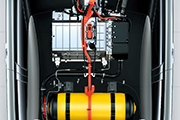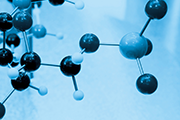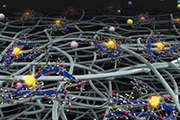Elucidation of anhydrous proton conduction mechanism using machine-learning Molecular Dynamics
A study conducted by Saori Minami et al. was published in the Journal of Materials Chemistry A.
Polymer electrolyte fuel cell is gaining attention as a power source of heavy-duty vehicles. Electrolytes that enable proton conduction at medium temperature and low humidity conditions are desired for flexible fuel cells operations. Phosphonic-acid-based electrolytes have been intensively studied as one of key materials to realize anhydrous proton conduction. However, the rate-limiting process of the proton conduction is unclear. Here, we unveiled the microscopic proton conduction mechanism by molecular dynamics simulations with machine-learned force fields that can accelerate the simulations by orders of magnitude retaining the first-principles accuracy. Simulations showed that proton is passed from one phosphonic anion to the other via H-bond recombination and subsequent anion rotation that happen every tens pico-second. Accelerating this concerted dynamics is a key to achieve the high anhydrous proton conduction.
Title: Accelerating Anhydrous Proton Conduction via Anion Rotation and Hydrogen Bond Recombination: A Machine-learning Molecular Dynamics
Authors: Minami, S., Jinnouchi, R.
Journal Name: Journal of Materials Chemistry A
Published: July 12, 2023
https://doi.org/10.1039/D3TA03164K


















